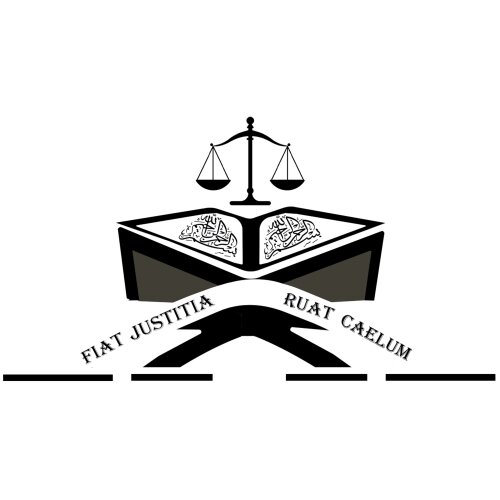Best Oil, Gas & Energy Lawyers in Pakistan
Share your needs with us, get contacted by law firms.
Free. Takes 2 min.
Or refine your search by selecting a city:
List of the best lawyers in Pakistan
About Oil, Gas & Energy Law in Pakistan
Oil, gas, and energy sectors are crucial to the economic development of Pakistan, contributing significantly to its GDP. Pakistan is endowed with substantial natural resources, including vast deposits of oil and natural gas, which are vital for the country’s energy needs. The industry encompasses exploration, production, distribution, and sales of oil and gas, as well as the development of renewable energy sources. The legal framework governing these activities is complex, involving various regulatory bodies and legislation that ensure responsible and sustainable exploitation of resources.
Why You May Need a Lawyer
Legal help in the field of Oil, Gas & Energy is often required due to the intricate nature of the agreements, the regulatory environment, and the high stakes involved. Common situations include:
- Negotiating and drafting contracts for exploration and production activities.
- Compliance with environmental and safety regulations.
- Resolving disputes over resource rights or contract terms.
- Navigating regulatory approvals and licensing processes.
- Litigating cases related to land use and property rights.
Local Laws Overview
The legal landscape for Oil, Gas & Energy in Pakistan involves several critical pieces of legislation and regulatory bodies. Key laws include the Pakistan Petroleum Exploration and Production Policy, the Oil and Gas Regulatory Authority (OGRA) Ordinance, and the Pakistan Environmental Protection Act. Each of these pieces of legislation regulates various aspects of the industry, such as permits for exploration, environmental protection measures, pricing, safety standards, and ensuring the fair allocation of resources.
Frequently Asked Questions
What is the role of OGRA in the oil and gas sector?
The Oil and Gas Regulatory Authority (OGRA) is responsible for regulating the midstream and downstream activities in the oil and gas sector. This includes pricing, licensing, and ensuring compliance with federal policies to protect consumers' interests and promote competition.
How do I obtain a license for oil and gas exploration in Pakistan?
You must apply through the Directorate General of Petroleum Concessions (DGPC), which issues exploration licenses after evaluating technical and financial capacities to ensure responsible utilization of resources.
What environmental regulations apply to the oil and gas industry?
The Pakistan Environmental Protection Act stipulates regulations that govern the environmental impact assessment (EIA) processes and controls pollution to ensure industrial activities do not significantly harm the environment.
Can foreign companies invest in Pakistan's energy sector?
Yes, foreign companies are encouraged to invest in Pakistan's energy sector. The government provides incentives such as tax exemptions and easier repatriation of profits to attract foreign direct investment.
Who owns the mineral rights in Pakistan?
In Pakistan, the federal government generally owns the mineral rights, though provincial governments also have a role in governance, particularly under the 18th Amendment.
How are commercial disputes in the energy sector typically resolved?
Disputes may be resolved through arbitration, litigation, or mediation. Pakistan recognizes international arbitration clauses, and many contracts are governed by laws such as the Arbitration Act.
What is the role of renewable energy in Pakistan's energy mix?
Renewable energy is growing in importance as Pakistan aims to diversify its energy mix. Policies are in place to incentivize wind, solar, and hydroelectric power to reduce reliance on fossil fuels.
What tax incentives exist for energy companies?
The government offers various tax incentives, including exemptions on imports of machinery and tax deductions for companies engaging in exploration and development activities within this sector.
What is the process for resolving land acquisition disputes for energy projects?
Land acquisition disputes are often settled through negotiation, but if unresolved, they may proceed to the judiciary or involve alternative dispute resolution mechanisms, depending on the specific case.
What is the significance of the 18th Amendment on energy governance?
The 18th Amendment has decentralized certain powers, giving more authority to provinces in managing resources and revenues, which impacts the regulatory landscape in natural resource management.
Additional Resources
For more information and support, consider reaching out to:
- Oil and Gas Regulatory Authority (OGRA)
- Directorate General of Petroleum Concessions (DGPC)
- Pakistan Energy Regulatory Authority (PERA)
- Ministry of Energy (Petroleum and Natural Resources Division)
- Pakistan Environmental Protection Agency (Pak-EPA)
Next Steps
If you require legal assistance in Oil, Gas & Energy, you should consider:
- Researching and contacting a lawyer with experience in Oil, Gas & Energy law.
- Gathering all relevant documents and information related to your situation.
- Scheduling a consultation to discuss your specific needs and the potential legal strategies available to you.
- Staying informed about current industry trends and legal updates that might impact your case.
Lawzana helps you find the best lawyers and law firms in Pakistan through a curated and pre-screened list of qualified legal professionals. Our platform offers rankings and detailed profiles of attorneys and law firms, allowing you to compare based on practice areas, including Oil, Gas & Energy, experience, and client feedback.
Each profile includes a description of the firm's areas of practice, client reviews, team members and partners, year of establishment, spoken languages, office locations, contact information, social media presence, and any published articles or resources. Most firms on our platform speak English and are experienced in both local and international legal matters.
Get a quote from top-rated law firms in Pakistan — quickly, securely, and without unnecessary hassle.
Disclaimer:
The information provided on this page is for general informational purposes only and does not constitute legal advice. While we strive to ensure the accuracy and relevance of the content, legal information may change over time, and interpretations of the law can vary. You should always consult with a qualified legal professional for advice specific to your situation.
We disclaim all liability for actions taken or not taken based on the content of this page. If you believe any information is incorrect or outdated, please contact us, and we will review and update it where appropriate.
Browse oil, gas & energy law firms by city in Pakistan
Refine your search by selecting a city.

















